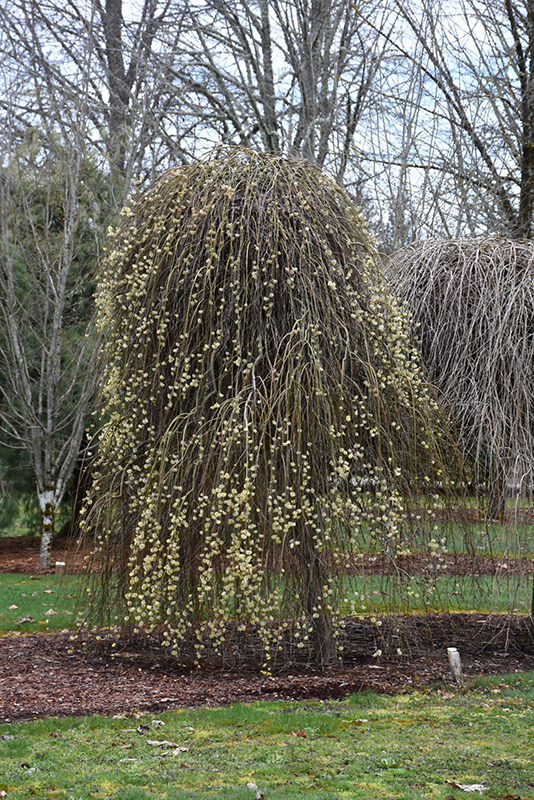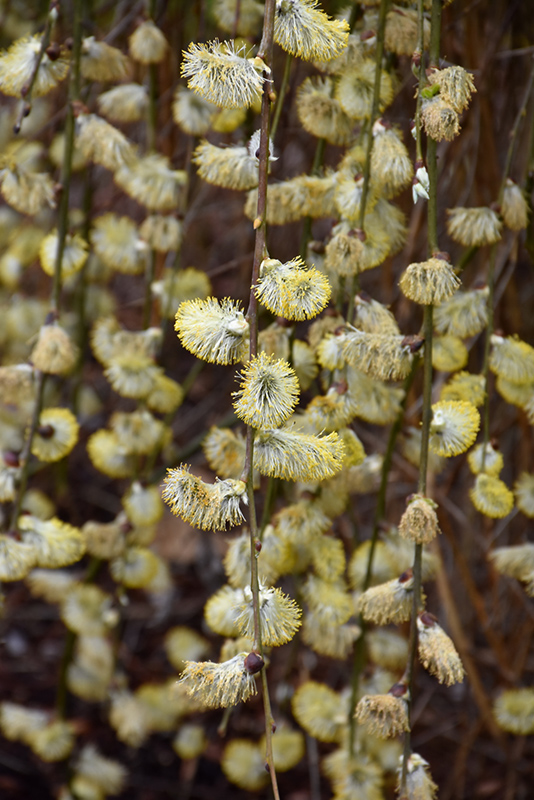>> Home
Height: 6 feet
Spread: 8 feet
Sunlight:
![]()
![]()
Hardiness Zone: 4
Other Names: Goat Willow
Description:
A unique weeping garden accent shrub, typically grafted onto a standard from where it weeps strongly downward, large fuzzy catkins are extremely showy in late winter; use only as a solitary in the garden to draw attention
Ornamental Features
Weeping Pussy Willow features delicate tan catkins along the branches from late winter to early spring before the leaves. The flowers are excellent for cutting. It has dark green deciduous foliage. The pointy leaves turn yellow in fall.
Landscape Attributes
Weeping Pussy Willow is a multi-stemmed deciduous shrub with a rounded form and gracefully weeping branches. Its average texture blends into the landscape, but can be balanced by one or two finer or coarser trees or shrubs for an effective composition.
This shrub will require occasional maintenance and upkeep, and is best pruned in late winter once the threat of extreme cold has passed. Gardeners should be aware of the following characteristic(s) that may warrant special consideration;
- Messy
Weeping Pussy Willow is recommended for the following landscape applications;
- Accent
- General Garden Use
Planting & Growing
Weeping Pussy Willow will grow to be about 6 feet tall at maturity, with a spread of 8 feet. It has a low canopy with a typical clearance of 1 foot from the ground, and is suitable for planting under power lines. It grows at a fast rate, and under ideal conditions can be expected to live for 40 years or more.
This shrub does best in full sun to partial shade. It is quite adaptable, prefering to grow in average to wet conditions, and will even tolerate some standing water. It is not particular as to soil type or pH. It is highly tolerant of urban pollution and will even thrive in inner city environments. This is a selected variety of a species not originally from North America.

